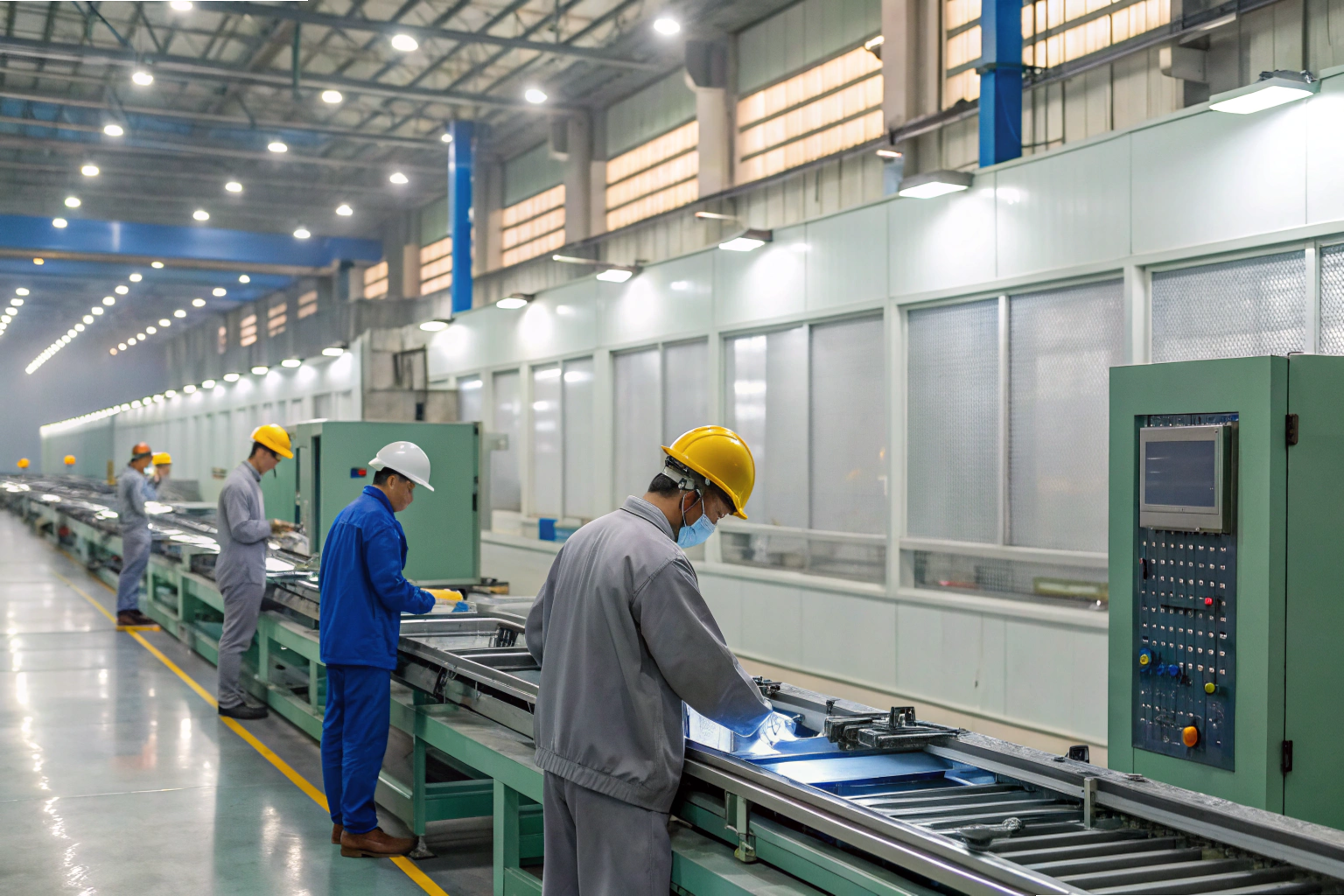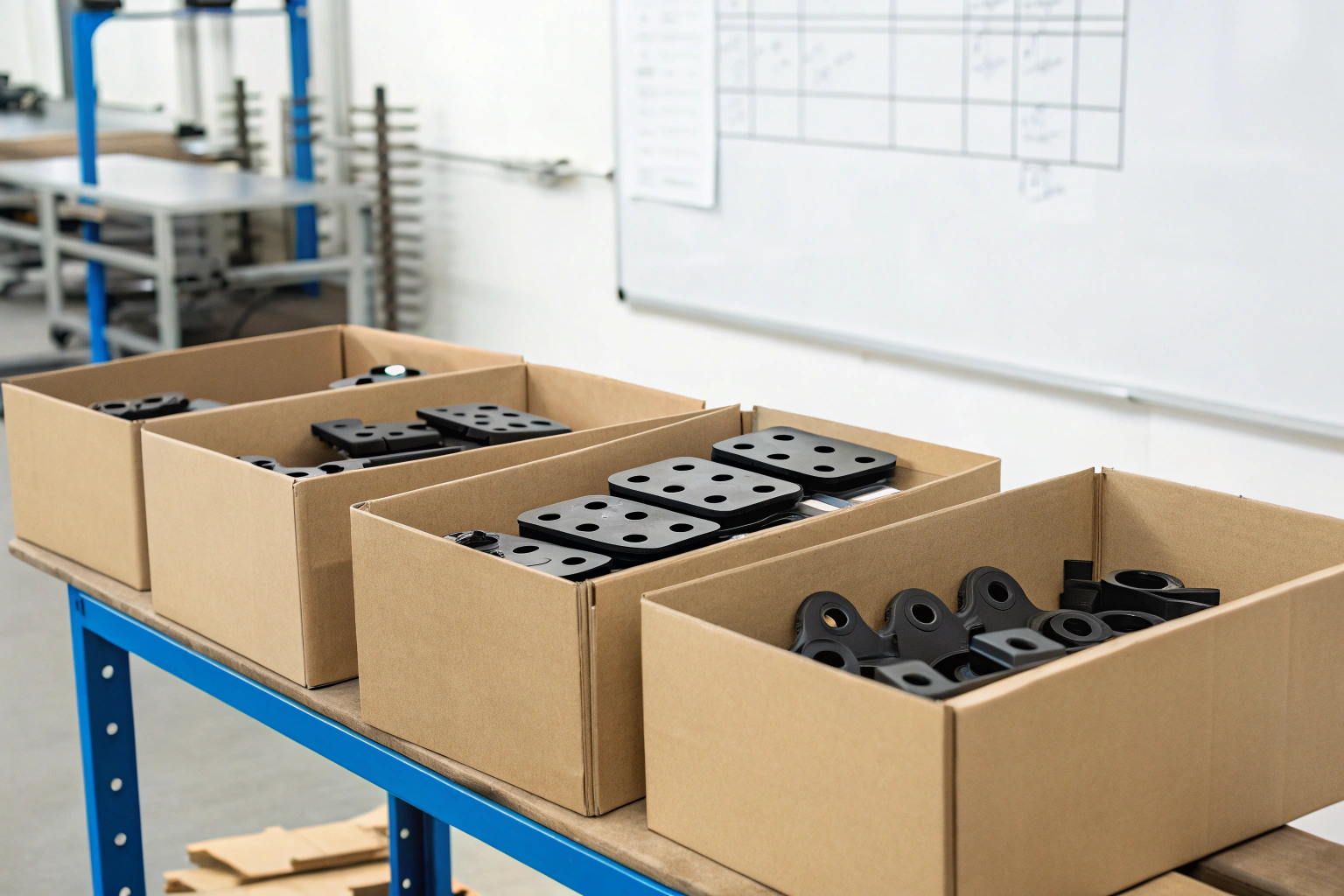
I used to think ISO 9001 was just another certificate—that changed when a non-certified supplier’s inconsistent tolerances forced a rework costing more than the certification itself.
ISO 9001 1 is highly valuable when importing custom metal parts from Vietnam. It standardizes how a supplier manages quality, reduces variation and defects, and signals readiness for export—but it is not always strictly essential depending on part criticality and your risk tolerance.
If you only care about price or lead time, ISO 9001 may seem like extra cost. But for tight tolerances, safety, or regulated sectors, it can save far more in risk and rework.
What does ISO 9001 certification guarantee for buyers?
I asked several certified factories in northern Vietnam what ISO 9001 means for them—they listed consistency, traceability, and fewer surprises.
ISO 9001 ensures that a supplier has a formal Quality Management System (QMS) 2, defined processes for inspection, continuous improvement, and documented procedures—helping you expect more consistency in products.

Dive deeper into ISO 9001 guarantees
Here are the specific things ISO 9001 will generally guarantee, and what to check:
| Guarantee | What this means in practice | What you should verify |
|---|---|---|
| Documented processes | Supplier has written procedures for production, inspection, corrective action | Ask for copies or summaries, walk through them during audit / factory visit |
| Traceability | Raw materials, batches, non-conforming parts are tracked | Check whether they keep batch records, material certificates 3 |
| Inspection & testing | Incoming material checks, in-process checks, final inspection are formalized | Ask for inspection/test reports or quality logs from past orders |
| Continuous improvement | Supplier analyzes defects and implements preventive actions | Ask what they changed after prior mistakes, see if they have corrective action records |
| Customer requirement focus | They have mechanisms to capture customer specs, feedback | Review how they handle nonconformities, changes in design, etc. |
ISO 9001 doesn’t guarantee perfect product performance by itself (e.g. a metal part with special alloy strength or finish). You still need to verify tolerances, materials, finish, etc.
Are certified factories more reliable in Vietnam?
From my experience and what I found in recent studies, yes—but with caveats.
Certified factories in Vietnam tend to have more reliable process control, lower defect rates, better documentation; but certification does not remove all risk—smaller factories, even if certified, may still have weaknesses in particular steps unless you vet them.

Dive deeper: reliability in practice
- Large export-oriented manufacturers in Vietnam (steel, sheet metal, structural parts) often hold ISO 9001:2015 and even more stringent certifications, and invest in modern equipment and QC practices. (MRS STEEL) 4
- A source claims that many factories are now ISO 9001 certified; e.g., steel structure manufacturers often follow international quality systems including ISO 9001:2015. (VALO Vietnam) 5
- But smaller or local factories may not maintain all elements of QMS well—inspections might be inconsistent, documentation weak, staff less trained. So even with certification, you should request evidence (reports, audits, references).
Can you work with non-certified factories safely?
Absolutely—but you need to take extra precautions.
Yes, it is possible to work safely with non-certified factories, if you enforce rigorous sampling, inspections, and quality agreements—but only if your parts are not high-risk, tolerances are loose, or volume is small.

Dive deeper: how to manage risk with non-certified suppliers
| Risk Area | Mitigation Measures |
|---|---|
| Variation in quality / tolerances | Do pre-production sample runs; inspect first batch; set quality specs in contract; possibly hire third-party inspectors 6 |
| Material quality uncertain | Request material test certificates; ask for proof of material grades; possibly do lab testing 7 on samples |
| Traceability / production records weak | Require basic documentation; photos; batch logs—even if informal; ensure you can trace materials / processes |
| Delivery & communication risk | Clear contract; milestones; penalty or rework clauses; frequent updates; perhaps engage local sourcing agents 8 to monitor |
Non-certified may cost less, or be available where certified ones are not, especially for small jobs or custom low volume parts. But you absorb more oversight risk and possible quality or delivery surprises.
What other certifications are relevant in metal parts?
Depending on part use, industry, destination, there are several other certifications or standards to consider.
In addition to ISO 9001, certifications like IATF 16949 9 (automotive), ISO 13485 10 (medical), ISO 14001 (environment), ASME, ASTM, CE marking etc., become relevant depending on end use.

Dive deeper: list of useful certifications & when they matter
| Certification / Standard | Focus | When it’s important |
|---|---|---|
| IATF 16949 | Automotive supplier QMS | Required for parts in vehicles; strict audits, process control |
| ISO 13485 | Medical device QMS | Required for implants, instruments, strict hygiene & validation |
| ISO 14001 | Environmental management 11 | For sustainable sourcing, compliance with export requirements |
| ASME / ASTM / JIS / EN / DIN | Technical material and performance standards | When strength, safety, durability, or weld standards must be met |
| CE marking / RoHS / REACH | EU compliance regulations 12 | For exports to EU, ensuring safety/environmental conformity |
| UL / CSA | Electrical & safety standards | For parts integrated in electrical or fire-safety applications |
Conclusion
Requiring ISO 9001 for Vietnamese suppliers is very helpful—it reduces risk, ensures process discipline, and supports your audits. But it is not strictly essential in every case. If you work with non-certified factories, you must compensate with strong sample testing, clear quality contracts, inspections, and rigorous supplier selection. Certification plus verification is the best path forward.
Footnotes
1. ISO’s official explanation of ISO 9001 quality management. ↩︎
2. Overview of Quality Management Systems (QMS) from ASQ. ↩︎
3. Mill test reports ensure raw material compliance. ↩︎
4. Example of a Vietnamese steel exporter with ISO 9001 certification. ↩︎
5. VALO Vietnam description of ISO 9001 in steel manufacturing. ↩︎
6. SGS inspection services for verifying supplier quality. ↩︎
7. Intertek laboratory testing services for materials. ↩︎
8. Vietnam Briefing article on sourcing agents. ↩︎
9. Official IATF 16949 standard for automotive quality management. ↩︎
10. ISO 13485 certification for medical device manufacturing. ↩︎
11. ISO 14001 environmental management systems explained. ↩︎
12. EU CE marking guide for product compliance. ↩︎

